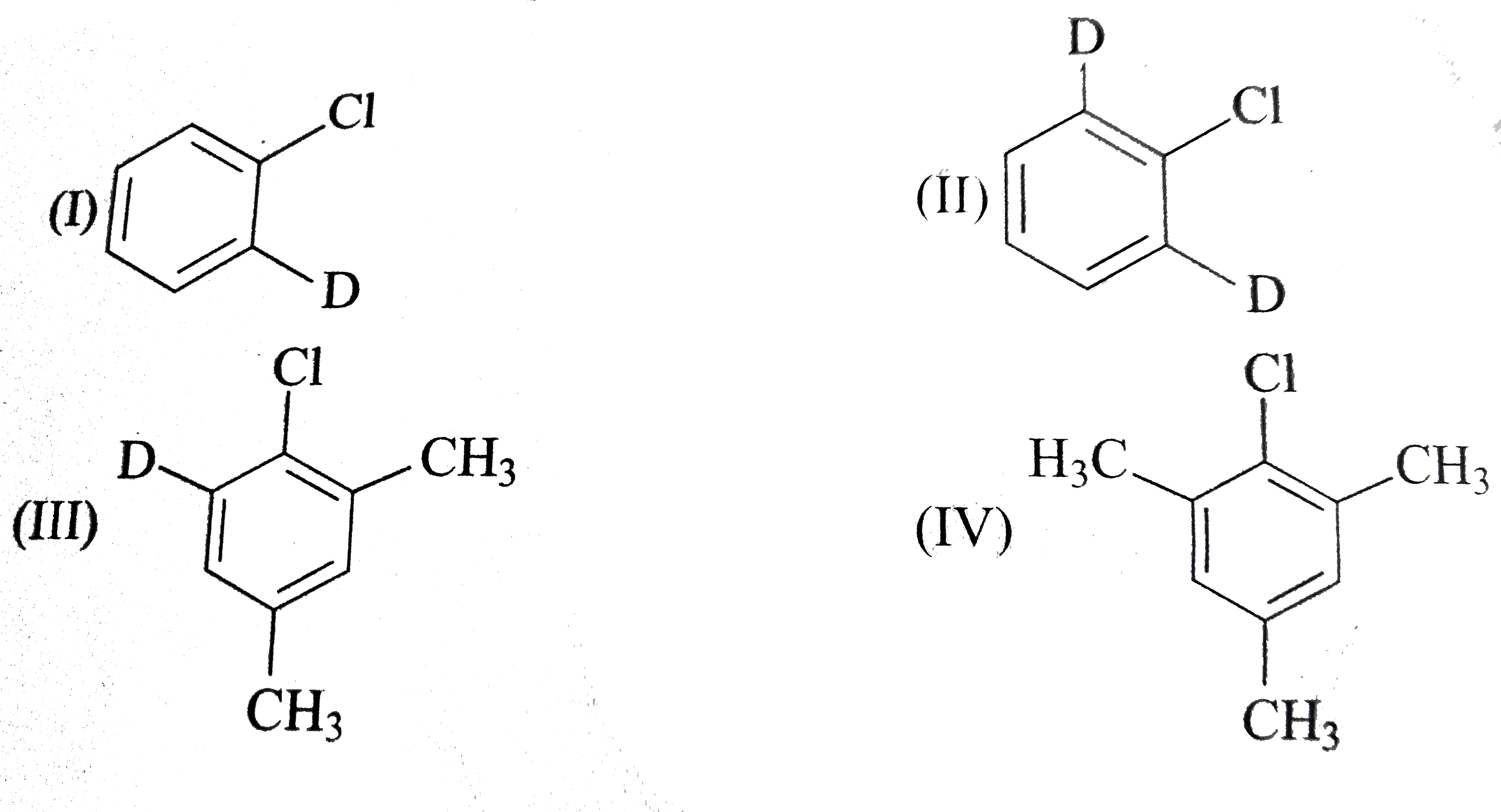Which of the following cannot undergo nucleophilic substitution under ordinary conditions
A
Chlorobenzene
B
Tert-butylchloride
C
Isopropyl chloride
D
None of these
Video Solution
Text Solution
The correct Answer is:A
Chlorobenzene undergoes nucleophilic substitution under a drastic condition because due to resonance C-Cl bond acquire some double bond character as a result substitution of -Cl by nucleophile become difficult under ordinary condition.
|
Similar Questions
Knowledge Check
Which of the following can undergo nucleophilic substitution under ordinary conditions?
I Allyl chloride
II Benzyl chloride
III n-Propyl chloride
IV Vinyl chlorideAI, II and III are correctBI and II are correctCII and IV are correctDI and III are correctWhich of the following compound undergo nucleophilic substitution faster?
A B
B C
C D
D
Which of the following is the correct nucleophilic substitution ?
AVinyl chloride > Allyl chloride > Propyl chlorideBAllyl chloride > Propyl chloride > Vinyl chlorideCAllyl chloride > Vinyl chloride > Propyl chlorideDPropyl chloride > Vinyl chloride > Allyl chloride
Which of the following compounds undergoes
nucleophilic substitution most readly?
View SolutionWhich of the following compounds does not undergo nucleophilic substitution reactions ?
View SolutionAryl halides do not undergo nucleophilic substitution reactions under ordinary conditions because:
(1). Approach of nucleophile is retarded
(2). Carbon carrying halogen atom is sp3 hybridised.
(3). The substrate molecule is destabilised due to resonance
(4). of partial double bond character between carbon and halogen.
View SolutionWhich of the following cannot act as nucleophilic species ?
View SolutionWhich of the following compounds undergoes mucleophilic substitution reaction most easily?
View Solution

